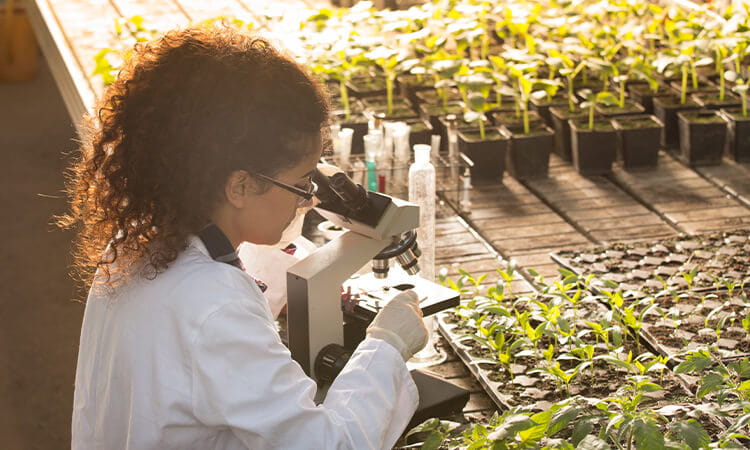What does a biologist do?
Get right into the nitty-gritty of how living organisms function and interact with their environment. As a biologist (also known as a life scientist) you would study the anatomy, physiology and biochemistry of humans, animals, plants and other living organisms. In terms of day-to-day work, you might be wondering 'what does a biologist do?'. The role of a biologist is varied and can involve conducting experiments, researching, preparing reports, or presenting findings. These activities could specifically relate to the forms and structures of bodily organs, or the chemical structures of living cells. Alternatively, you might be examining micro-organisms like bacteria, or investigating how plant growth is affected by environmental factors. Your research could help advance medical, industrial, or agricultural practices.
Other related occupations include immunologist, anatomist, physiologist, zoologist, botanist, microbiologist, ecologist and geneticist.
Is a career as a biologist right for me?
Careers in biology or life science requires an inquisitive nature and a fascination with all things living, from bacteria to animals to humans! Other skills and attributes beneficial for this role include:
- high attention to detail
- the ability to think logically and analytically
- strong communication and research skills
- the ability to work independently and in a team
- exceptional problem-solving skills.
How to become a biologist
If you're wanting to embark on a biologist career with there are multiple avenues to pursuing your aspirations in this field. To become a biologist, you typically need a bachelor degree in science or a related science field. It’s also common to complete postgraduate studies to gain specialised in-depth knowledge.
Every journey to study is individual and there are several paths to a career in biology. At UniSQ, we offer the following degrees in the area of biology:
Source: yourcareer.gov.au
© Commonwealth of Australia
Last updated May 2024.

- Marine biologists study the living organisms in oceans and other bodies of water, examining marine species, their interactions, and the ecosystems that support them.
- Wildlife biologists focus on studying animals and wildlife in their natural habitats, observing the behaviour, genetics, and interaction of wildlife with their ecosystems.
- Molecular biologists work on the cellular and molecular level to understand the structure and function of cells, including DNA, RNA, and proteins are often based in medical and research settings.
- Ecologists study the relationships between organisms and their environments, looking at how species interact with each other and their surroundings.
- Zoologists specialise in studying animals, their behaviour, genetics, and the way they interact with their ecosystems, often focusing on specific types of animals.
The demand for biologists is stable, with significant opportunities in various sectors. Marine and wildlife biologists primarily find employment in education, training, and professional scientific and technical services. The need for these specialists is influenced by several factors, including heightened conservation efforts aimed at preserving biodiversity and understanding ecological impacts.
Ongoing research into environmental and ecological health bolsters demand for biologists, particularly for roles involving fieldwork and data analysis. Developments in environmental policies and regulations often require the expertise of marine and wildlife biologists to help shape and implement strategies.
The time it takes to become a biologist can vary depending on your previous education, the training requirements of specific fields, and employment opportunities.
There are multiple pathways for you to take at UniSQ to work towards a biologist career. Often, an undergraduate degree is required for this profession, which typically takes three-years to complete. You can also choose to undertake an undergraduate degree in a discipline other than biology, followed by a postgraduate degree in a specialised area of biological sciences.